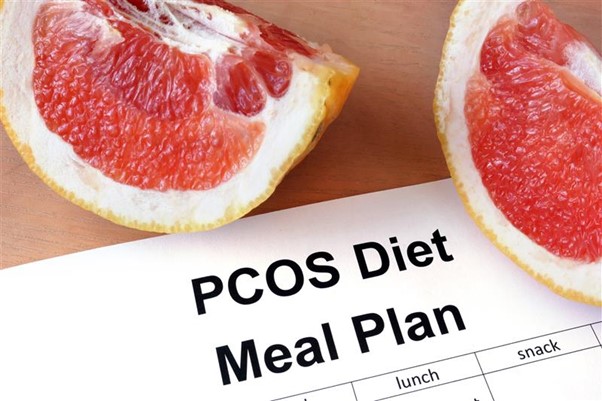Understanding PCOS and Its Impact
Polycystic ovary syndrome (PCOS) is a common health condition that affects many women. It can cause irregular periods, weight gain, acne, and sometimes trouble getting pregnant. Because PCOS can also raise the risk of diabetes and heart disease, it is important to manage it well. Nutrition for PCOS plays a big role in keeping symptoms under control and improving overall health.
The Role of Nutrition in Managing PCOS
Good nutrition helps balance hormones and manage weight. In fact, healthy eating for polycystic ovary syndrome can lower the risk of long-term health problems. When you eat the right foods, your body can use insulin better. This may help reduce some PCOS symptoms. According to the CDC, a balanced diet is key for managing PCOS.
Best Foods and Nutrients for PCOS
Choosing the right foods can make a big difference. For example, whole foods give your body the nutrients it needs. Here are some of the best foods for PCOS:Whole grains: Brown rice, oats, and quinoa help keep blood sugar steady.Lean proteins: Chicken, fish, eggs, and beans support muscle health.Healthy fats: Avocado, nuts, seeds, and olive oil are good for your heart.Fiber-rich foods: Fruits, vegetables, and legumes help you feel full longer.Vitamins and minerals: Leafy greens, berries, and dairy provide important nutrients.
Additionally, eating a mix of these foods can help manage hunger and support hormone balance.
Foods to Limit or Avoid
Some foods can make PCOS symptoms worse. Therefore, it is best to limit or avoid the following:Processed foods: Chips, cookies, and fast food often contain unhealthy fats and sugars.Added sugars: Sodas, candy, and sweetened drinks can spike blood sugar.Refined carbs: White bread, pastries, and white rice may cause quick rises in blood sugar.Fried foods: These can increase inflammation in the body.
Instead, try to choose whole, natural foods whenever possible.
Sample Meal Ideas and Daily Dietary Tips
Planning meals can help you stay on track. Here are some simple meal ideas for a PCOS-friendly diet:Breakfast: Oatmeal with berries and a handful of nutsLunch: Grilled chicken salad with mixed greens, tomatoes, and olive oilSnack: Sliced apple with peanut butterDinner: Baked salmon, brown rice, and steamed broccoli
For snacks, choose fruits, yogurt, or raw veggies. Also, try to eat at regular times each day to keep your energy steady.
Lifestyle Guidance for Healthy Eating
Besides choosing the right foods, healthy habits matter too. Here are some tips to support your nutrition for PCOS:Drink plenty of water throughout the day.Eat smaller portions to avoid overeating.Do not skip meals, as this can affect your blood sugar.Plan meals ahead to make healthy choices easier.Include a variety of colors and foods on your plate.
Moreover, regular physical activity can help manage weight and improve mood.
Prevention and Long-Term Management
Long-term healthy eating for polycystic ovary syndrome can lower the risk of diabetes and heart disease. Even small changes in your diet can make a big difference over time. For example, swapping sugary drinks for water or choosing whole grains instead of white bread can help. Remember, consistency is key for lasting results.
Conclusion: Take Charge of Your Health
In summary, nutrition for PCOS is a powerful tool for better health. By making smart food choices and building healthy habits, you can manage symptoms and feel your best. Consult a healthcare provider or registered dietitian for personalized nutrition advice for PCOS.

